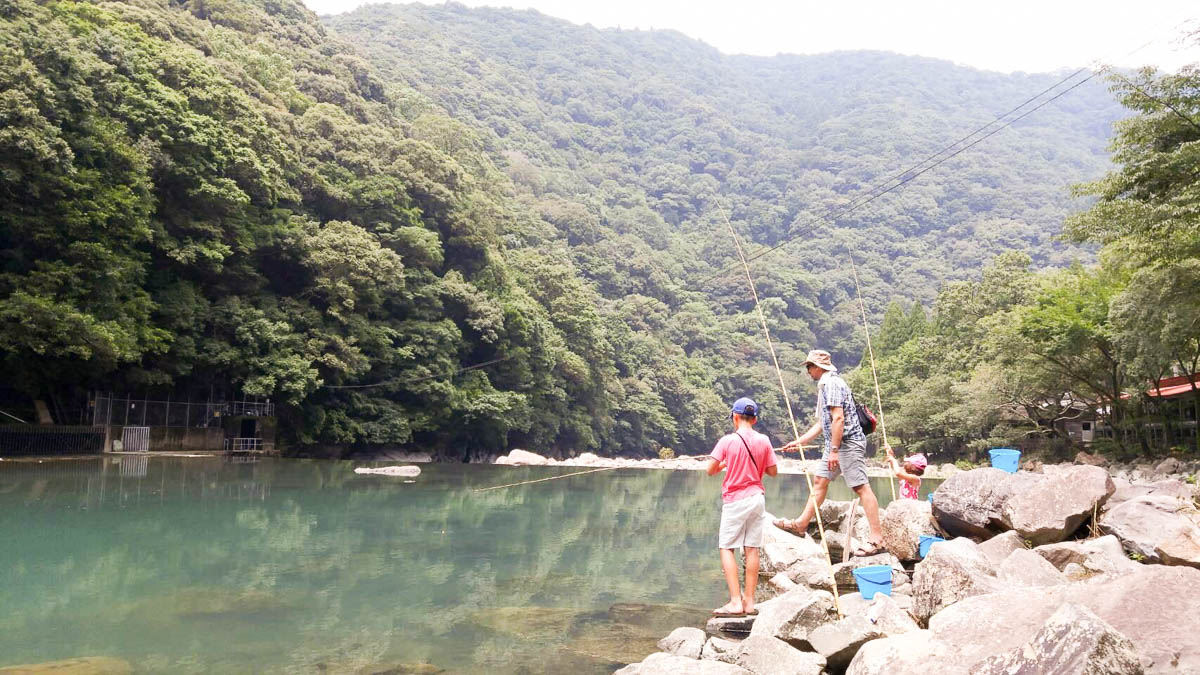teaching your kid to fish
2019.04.08 (updated : 2025.06.15)
I've never known anything quite like teaching a kid to fish. It can be quite amazing to watch a child react to "fish on!", to landing the thing, and dealing with a real life wild fish.

But the reality is that kids + fishing gear = mess. Tangles are a given, as are lost end tackle. My son, by that time already nine years old, once left his fishing rod somewhere random which he described as "packed". We never saw it again despite rushing back to the site in the morning.
So here's my advice, having now introduced two of my own kids to fishing, and a number of other kids ranging from age three to sixteen.
set yourself up for success
It pays to understand the sport a little, and to make life easy on yourself.
aim small
Go where you can find some small fish. Panfish go a long way with small children, they don't have to start on "sport fish". Bring along a small net (such as a trout net). Cut cost on your rod and reel and all the other gear if you must, but get a decent net with that weird rubber stuff instead of a traditional string net. String nets and fish and kids mix terribly.
If you live somewhere cold, rent an ice-fishing hut and go after perch. This allows you to keep the kids away from open water, and you can feed them a snack. When the kids get bored they can blow off steam by running around on the ice.
pack super light
Take along the least imaginable equipment: some ultra-light rods and small reels suitable for small hands. Use lightweight mono line such as 4# test. Do not try to use braided line, the kids will somehow get it knotted just by casting (I don't really understand how they do this but it happens immediately.) Take a variety of small tackle, such as:
- Hooks, small bobbers, and earth-worms. Bring a couple of extra bobbers, they will get smashed.
- Small spoons and spinners for casting or jigging.
That said, bring food and water and sunscreen and insect repellent and so on.
go in marginal (for humans) conditions
I've found the best fishing happens under overcast and the worst tends to happen under completely clear skies. There are always exceptions, but that's the general rule. Early mornings and late evenings tend to be better (often much better) than late morning, midday, or in the afternoon.
set up somewhere uncomfortable
The more uncomfortable you humans are, the better the fishing will likely be. Get to a lake and situate yourself somewhere that the wind is in your face. This will have blown the top water toward you. This water will be full of plankton which will bring the bait fish, which will bring whatever you're after.
teaching the skills
Start by pointing out all the parts to the equipment, and the basics of using them.
Don't try to teach a kid more than one or two simple concepts in the space of a morning or afternoon outing. Teach casting or reeling or setting a hook but don't expect it all to stick. With small children, be prepared to do it all again after the kid's had a sleep. If the learning/sleep cycle's not there repeats seem to be necessary.
Conversely, do teach as much about fish behavior as you can, this will take a lot of the frustration out of it, because the kids will understand the context of what's happening and will find it all fascinating. I've found that this is the gateway to getting the kids to concentrate.
As for knots, I advise letting the child lead by expressing an interest. I find it impossible to get a kid interested in something that takes effort, precision, and dexterity when their mind's just not in it. They say youth is wasted on the young, and tying end tackle onto a line is an excellent example - those nimble little fingers and superb near-distance eyesight are wasted when a kid shrugs off the challenge.
are these kids unteachable?
This question will occur to you frequently. Bring a super-human amount of patience. It won't be enough, but bring all you have. Kids will ask a lot of questions, and frequently these will be insane. Kids have excellent agility but incredibly variable hand-eye coordination, experience, and attitude. Some love handling bait and fish, others just can't do it. Just roll with it, you brought kids this is how it's going to be.